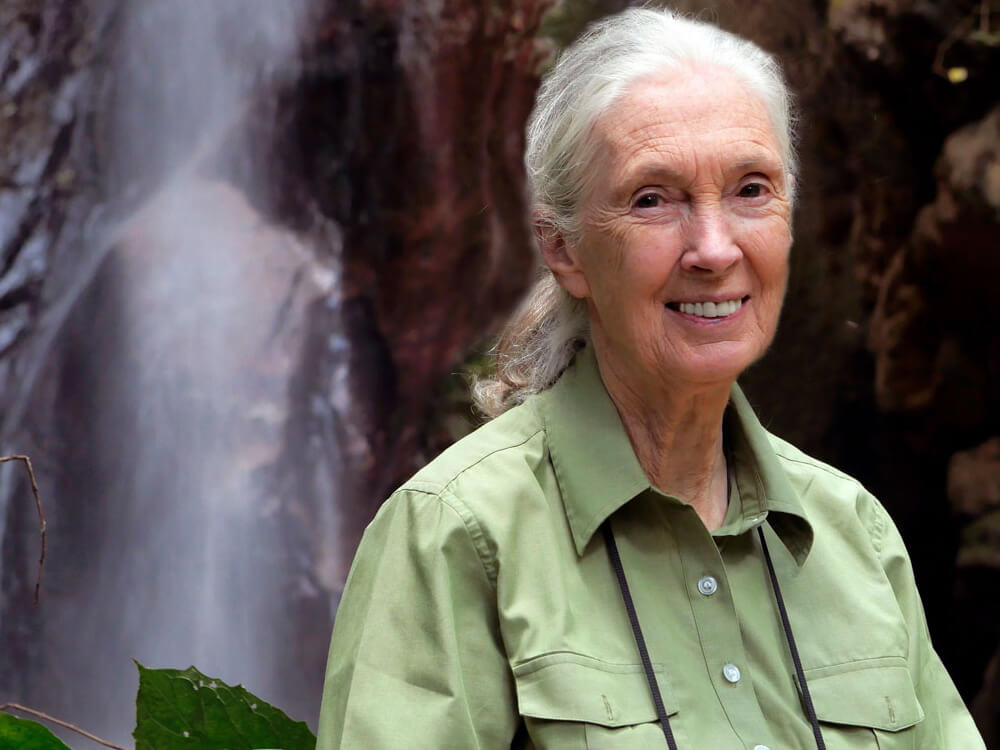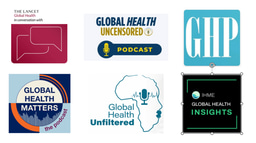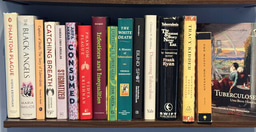Holding on to hope in a troubled world
Published in Microbiology

Like everyone else, I'm struggling during this pandemic. Covid-19, climate crisis, conflicts, the rise of authoritarianism and nationalism, growing anti-science aggression, and lack of global solidarity make me despondent and pessimistic about our collective future. If we cannot tackle the pandemic as humankind, how will we rise up to the challenge of averting climate disaster?
On one particularly depressing day, I opened the mail and found a package with a book that I had pre-ordered, but completely forgotten about: The Book of Hope, by Jane Goodall and Douglas Abrams, Celadon Books, 2021. A book of hope is exactly what I needed - it is as if the universe was sending me a message through this book! Needless to say, I devoured the book very quickly!
Goodall begins by acknowledging that we are going through dark times. But she makes a powerful argument for not giving up on hope. "Without hope, all is lost," she argues. She says hope is a crucial survival trait that has sustained humankind over centuries. In her long life (she is almost 90) and career, she has seen humankind deal with many adversities and overcome them.
Goodall writes that her life has been sandwiched between world wars. "The first, when I was a child, was a fight against human enemies, Hitler's Nazis. And now, as I approach my nineties, we must defeat two enemies, one against invisible, microscopic enemies; the other - our own stupidity, greed, and selfishness," she says.

Four reasons for hope
In her book, Goodall give us 4 reasons for holding on to hope:
1. The amazing human intellect
2. The resilience of nature
3. The power of young people
4. The indomitable human spirit
The first reason for hope, the amazing human intellect, is very much on display during this pandemic. Within a matter of months, scientists have developed, evaluated and delivered over a dozen effective Covid-19 vaccines, and 50% of the world's population has received at least one dose. While vaccine inequity is a big challenge, the fact remains that science delivered, and quickly. "If we use our intellect and play our part, each one of us, we can find ways to slow down climate change and species extinction," says Goodall.
The second reason for hope, the incredible resilience of nature, stems from the fact that the world around us is capable of healing and recovering. "Nature is extraordinarily resilient. Nature is so much more intelligent than we are," says Goodall. The book provides a number of examples of how nature has adapted, healed and recovered.
The third reason for hope is young people. "What gives me hope is that everywhere I go, young people filled with energy want to show me what they've done and what they're doing to make the world a better place. Once they understand the problems and when we empower them to take action, they almost ways want to help. Their energy and enthusiasm and creativity are endless," says Goodall. It is clear that young people are truly leading the world today on climate justice and action. Their efforts are also visible in the area of global health. In fact, young people in global health, is what gives me hope (see my recent Convocation address, where I speak about this).
The fourth reason for hope is the indomitable human spirit. This is what helps us to go on even it seems hopeless. "It's that quality in us that makes us tackle what seems impossible and never give up," says Goodall. The book provides several inspiring examples of the human spirit, real (e.g. MLK) and fictitious (Bilbo and Frodo in Lord of the Rings).
The cumulative effect of thousands of ethical actions can help to save and improve our world for future generations
Small actions do matter
At times, the sheer scale of the problems we face makes me despondent and paralyzed. I am sure I am not the only one. "Many people understand the dire state of the planet - but do nothing about it because they feel helpless and hopeless. I hope people realize that their actions, however small they may seem, will truly make a difference," says Goodall. "The cumulative effect of thousands of ethical actions can help to save and improve our world for future generations," she says.
Jane Goodall ends her amazing book with this call to all of us: "Please, please rise to the challenge, inspire and help those around you, play your part. Find your reasons for hope and let them guide you onward."
Personally speaking, my reason for hope is that we are more than capable of ending this pandemic for everyone. We know a lot about how improve the health of this world. But we are failing on equity, global solidarity and global citizenship. So, fighting for equity in global health is what guides me onward. And, as an academic and teacher, I am lucky to be surrounded by young people. They give me the spark and hope I need to keep going.





Please sign in or register for FREE
If you are a registered user on Research Communities by Springer Nature, please sign in